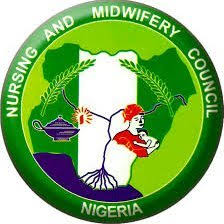The National Agency for Food and Drug Administration and Control (NAFDAC) has stressed the need to combat the sale and distribution of Substandard and Falsified Medical Products in the country within the supply chain. The agency vowed to close sales and distribution outlets that facilitate the spread of fake drugs and emphasized that it is determined to combat the incidence of substandard and falsified (SF) medicines in the country.
Director-General of the agency, Prof Mojisola Adeyeye stated this at a joint press briefing with the pharmaceutical supply chain stakeholders in Lagos to review the national strategic action plan on prevention, detection, and response to substandard and falsified medicine in the country.
She observed that NAFDAC is determined to combat the incidence of substandard and Falsified (SF) medicines in the country and warned that the agency would not hesitate to clamp down on wholesale and retail outlets where fake drugs are dispensed for public use. Adeyeye noted that the engagement with stakeholders in the industry supply chain was aimed at putting an end to the menace and effectively safeguarding the health of Nigerians.
She said: “The engagement with pharma supply chain stakeholders in Nigeria serves as a means of thinking together and putting in place a position that will represent or guide collective efforts and strategy to prevent, detect, and respond to substandard and falsified medicinal products, adding that the goal is to ensure that medical products in circulation are of the quality standard required and safe for public use.”
Adeyeye debunked reports of alleged proliferation of fake drugs in the country adding that surveys were done in 2021 and 2022 for ant-malaria with a 10 percent prevalence level. She said, ‘There is no proliferation of substandard medicines. We do national surveys and sampling of products using scientific methods from different parts of the country. The fact that we have a shortage of medicines does not mean there is a proliferation of substandard falsified medicines.”
She noted that the pharmaceutical supply chain plays a vital role in ensuring that safe, quality, and efficacious medicines reach the end users, adding that there is, therefore, a need to foster complementary partnerships that will seek to identify lapses in the supply chain system to improve the chances of winning the war on substandard and falsified medical products in Nigeria.
She stated that 70 percent of medicines used in Nigeria come from outside which necessitated the establishment of a Pre-shipment testing scheme that has stopped over 124 products that were approved from coming into the Nigerian market. “Some of the SF medicines do not have content, some will not disintegrate, and some will not dissolve. In contrast, some of them have wrong labeling and all sorts of non-compliance,” she said, adding that the Agency is dealing with that now with the World Health Organisation (WHO).
Prof Adeyeye further disclosed that most of the products stopped from coming into the Nigeria market have fake certificates of pharmaceutical products,
She said, “It’s not just India bringing substandard falsified medicines to us, it is us Nigerians that connive with them to bring in cheap products at the detriment of lives in Nigeria,”. The NAFDAC boss further disclosed that over 124 shipments have been stopped and they were approved products which if not stopped could have been in circulation in Nigeria for five years. So, if ten containers per year for one particular product or two containers per year should find their way into Nigeria, you can figure out what the consequences might be,”, she added.
Adeyeye announced the birth of a new regulatory directive with an emphasis on the source of raw materials used in the production process. She said, ‘For those that are registering new products, they must procure raw materials from approved sources like WHO Prequalified sources, Food and Drug Administration (FDA), or other stringent Regulatory Authorities. If you don’t source from a prequalified source, we will not register the product.”




